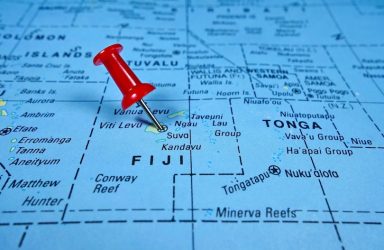Turning Domestic into Political: The Case of Female Self-immolation in Iran
Patriarchal values fuel conflict, confine Iranian women to home, and impact their security, driving some to choose self-immolation. Yet, some also find agency in that.
The Convention on the Elimination of All Forms of Discrimination Against Women’s Failures in Fiji
Fiji fails to decrease the occurrence of gender-based violence despite the ratification of the CEDAW due to several intersecting factors.
The Limits of the Scientific Method in International Relations
While positivism has brought a sense of rigor and academic framework to study international politics, it obscures some crucial truths.
The Possible Martian Order: Extension or Rejection of Earth’s Systems?
Applying different theories of international relations, we can explore the differences that might emerge in a political system on human-settled Mars compared to that on Earth.
Nation States: Stronger in Europe than Elsewhere?
Europe has imposed its intrinsic identity and revolutionary social and political values and models worldwide, transforming many of them in global standards, shaping the lives of billions of people. It is within the European geographical space that a large number of the world’s greatest empires have developed and some of humanities most valuable technological, spiritual, cultural, economic or political advancements have been achieved.
The Securitisation of Ethnicity in Serbia (1987-1991)
Securitising moves and speech acts performed by Slobodan Milosevic paralleled his successful attempts at securing and increasing his political power in Yugoslavia.
How Do Terrorist Groups Emerge?
State repression heightens the sense of antagonism between certain political actors, ultimately culminating in a vision of the status quo as a state of war.
Does Britain’s Future Lie with North America, rather than Europe?
Current events like the European debt crisis seem to only emphasise the need for Britain to look to North America in order to join NAFTA and escape European bureaucracy.
To What Extent has the ‘War on Terror’ Affected the PRC Government’s Handling of the Northwest Uighur Muslim Population and its Campaign for an Independent State of East Turkestan?
The events of September 11th 2001 (hereafter 9/11) and the ensuing ‘War on Terror’ had profound ramifications for governments worldwide, influencing both international and domestic policy and engendering a reinvigorating and defining phase in global geopolitics. Within this framework, it is proposed that 9/11 impacted palpably upon the PRC (People’s Republic of China) government’s policy toward ‘its’ restive Uighur Turkic Muslim minority in the northwestern border province of Xinjiang.
‘NAFTA was signed because it made political sense’. Discuss.
This essay will begin with a detailed analysis of how NAFTA fits into the concept of regionalism and addressing the international political economy theories that inform it. It will then move on to a thorough critique of the economic and political motivations of the United States, Canada and Mexico and the theories that explain them, before bringing the NAFTA debate up to date with a brief summary of where we stand now. It will argue that NAFTA primarily serves an economic function, but was brought about by a ‘confluence of many factors’ which helped to shape NAFTA into the free-trade agreement that today appears irreversible.






